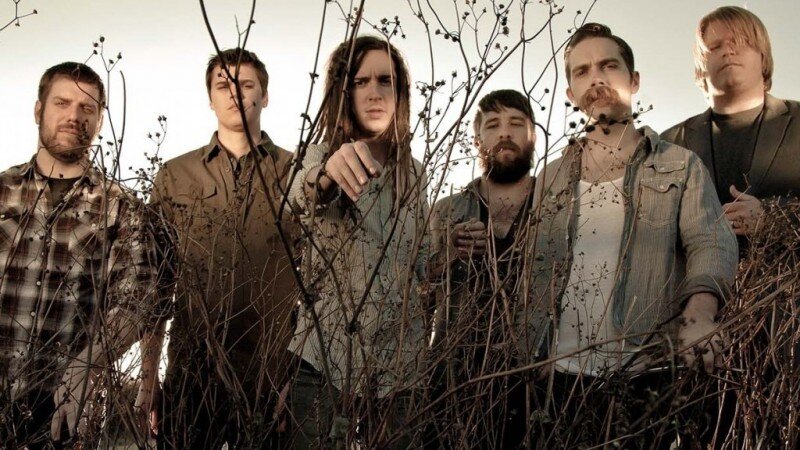Originally published by Creative Loafing Tampa Bay on January 23, 2013.
When I first heard that Tampa heroes and heavy rockers Underoath were calling it quits, I was left with a weird, unsettled feeling, the one you get when you're faced with the impending demise of one of your favorite bands. That being said, I wasn’t shocked or saddened by the news — they’ll be missed, but this is their chance to take a bow while they’re still on top.
So I’d like to take this opportunity to discuss Underoath’s tremendous impact on both heavy and Christian music genres, which extends well beyond the Tampa Bay area, as well as the impact Underoath had on my life growing up as a Christian, as a musician, and just as someone who loves music.
Underoath originally formed in 1997. Since then, the band has released seven full-length records and experienced numerous lineup changes as they constantly evolved and perfected their sound. Their breakthrough record was 2004 fourth album They’re Only Chasing Safety, and Safety not only introduced me to Underoath and heavy music, but initiated a huge change in me musically and personally.
I remember that first listen as if it were yesterday. I was in high school when I started hearing hype about this Tampa Christian band, and one day after school, I had my mom drive me to our local WalMart to buy Safety. When I slid it into the CD player of my mom’s minivan, she asked, “This isn’t going to be some crazy screaming music is it?” I responded innocently as I pushed play, “No, they’re from Tampa and they’re a Christian band.” When the first line screamed through the stereo speakers, my mom looked at me, insulted, her glare asking, “What kind of Christian music is this?” And thus I discovered a band that spoke to me and one I could tell my mom didn’t approve of outright. What more could a teenager ask for?
Underoath’s music was completely novel. I grew up going to church regularly, was active in its youth program, and even played in the church band, though I was always confused about the whole idea of religion. Even as a child, I was never fully comfortable with the constructs of ‘church.’ I always felt like faith was a deeply personal thing, and the church I experienced was less a place to re-establish that personal faith and more like a competition of who was better than whom. I was never really comfortable with being preached to because I knew everyone had their flaws, but church started to seem like a place to hide those flaws instead of working on them. In reflection of that, I felt all Christian music I’d listened to up to that point was telling me to do something, ordering me to be better, making me feel guilty about things no one could possibly know about.
I was drawn to Underoath not because of the message they had in their music, but the message they didn’t have. All of a sudden there was this band made up of Christians not preaching to me or commanding me to be or do something. They were singing about real life, about making mistakes and owning up to them. Their music was less of a sermon and more of a confession. Underoath made the teenager in me realize there were others out there actually struggling with their lives and their faith, and they weren’t trying to hide it at all. Underoath came off as genuine, addressed issues in their songs not just relevant to Christians but to people in general, and all amid screaming guitars and heavy breakdowns. This is possibly one of the reasons the band became so successful with both Christian and non-Christian audiences, and why they have an army of both faith-based and non-faith-based fans.
Underoath made heavy music more accessible to a wider audience by successfully combining hardcore musical themes with catchy melodies, clean and screaming vocals, and distorted guitars with more atmospheric tones. Their ability to draw on metalcore, screamo, Christian metal and post-hardcore influences brought together a diverse base of fans who could finally agree on something.
Their style birthed a new breed of bands that identified with what Underoath was doing, and added their own personal spin to it, a snowball effect that continues to this day. Just look at Underoath’s Twitter profile around the date they announced their disbandment to see evidence of their influence. Along with the expected outpouring of support, disbelief and some anger from fans was an incredible response from musicians from other bands expressing gratitude to Underoath for changing their lives, some pointing out that without Underoath, their bands would not exist.
Underoath’s name comes up in many conversations about local music success stories, and their name continues to inspire hope in other Tampa Bay musicians — at least those musicians I’ve talked to. Knowing success is attainable no matter where they're from or what type of music they play fuels the creative fire and encourages these musicians to work harder at their crafts. This positive impact on the Tampa music scene may be Underoath's most important impact of all.
By and large, this is not a sad farewell. Underoath is leaving on top, going out with a bang, and they’ll be remembered for a long time to come. If there’s one thing that can be said, it’s that Underoath mattered. They mattered to the world, they mattered to music, they mattered to Tampa, and they mattered to me. Thank you.
—
Underoath plays their final Tampa area show this Sat., Jan. 26, at Jannus Live in St. Petersburg. Tickets have been sold out for months, but perhaps you can find a merciful friend who bought theirs early and happens to have an extra. You won’t want to miss this one.
